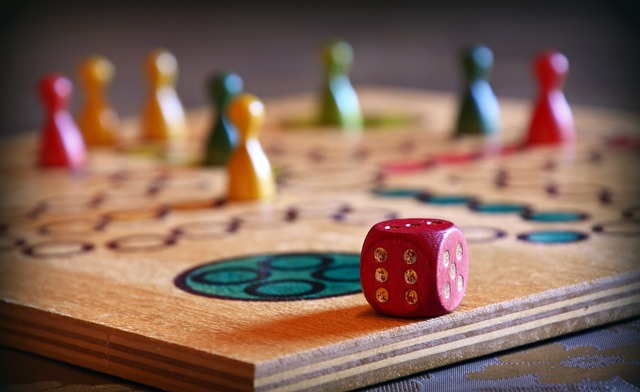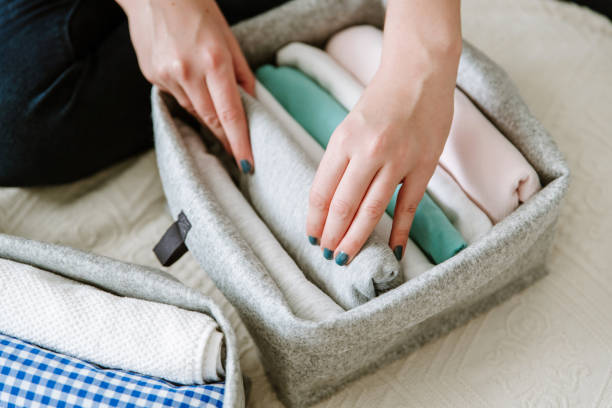Beyond Lullabies: Why White Noise Helps Your Baby Sleep Better?
The cries of a newborn can pierce the veil of even the deepest sleep. As new parents, the quest for a good night’s rest becomes an all-consuming mission. If you’ve been scouring the internet for solutions, you’ve likely stumbled upon the magic (or should we say, science?) of white noise.
But why exactly does white noise work wonders for a baby’s sleep? Buckle up, sleep-deprived parents, because we’re diving into the science behind this soothing sound.
From the Womb to the World: A Noisy Transition
Contrary to popular belief, the womb is not a quiet place. A baby spends nine months bathed in a symphony of sounds – your heartbeat, your breathing, whooshing blood flow, and even the muffled sounds of the outside world. This constant hum becomes a familiar comfort, a lullaby of sorts.
Birth throws a wrench into this symphony, exposing your baby to a world of unfamiliar sounds – everything from barking dogs to creaking floorboards. This sudden shift can be overwhelming and disruptive to their sleep.
White Noise: A Calming Shhhhh…
White noise is a constant, uniform sound that combines various frequencies. Think of it like the static you hear on an untuned TV or the steady rush of a fan. While it may sound bland to our adult ears, for a baby, it acts as a comforting shield. Here’s how white noise works its magic:
- Blocks Out Distractions: White noise masks disruptive sounds like a neighbor’s TV or a sibling’s laughter. This creates a more consistent sleep environment, allowing your baby to fall asleep and stay asleep for longer stretches.
- Mimics the Womb: The steady hum of white noise can be reminiscent of the sounds your baby heard in the womb. This familiarity provides a sense of security and comfort, promoting relaxation and deeper sleep.
- Calming Reflex: Studies suggest that white noise can trigger the calming reflex in babies. This reflex, a set of involuntary responses triggered by specific movements or sounds, helps soothe a fussy baby and promotes relaxation.
- Shhh…ing Effect: White noise can have a shushing effect, similar to the sound a parent might use to soothe a crying baby. This repetitive, calming sound can lull your baby to sleep.
Beyond the Science: The Benefits of Using White Noise
The science behind white noise is compelling, but the benefits extend far beyond the laboratory. Here are some practical advantages of using white noise for your baby’s sleep:
- Improved Sleep Quality: White noise can lead to longer stretches of uninterrupted sleep for your baby, and consequently, for you!
- Reduced Nighttime Fussiness: By masking disruptive sounds and creating a calming environment, white noise can help minimize nighttime wakings and fussiness.
- Eases Settling: White noise can be a helpful tool for establishing bedtime routines. The soothing sound can signal to your baby that it’s time to wind down and prepare for sleep.
- Promotes Self-Soothing: Over time, with consistent use, white noise can help your baby learn to self-soothe and fall asleep independently.
Is White Noise Right for Your Baby?
While white noise offers a multitude of benefits for many babies, it’s not a guaranteed sleep solution for every child. Here are some things to consider:
- Every Baby is Different: Some babies may find white noise overly stimulating, while others thrive on its calming presence. Experiment and see how your individual baby responds.
- Start Early and Be Consistent: Introduce white noise early on in your baby’s sleep routine. Consistency is key for establishing a positive sleep association.
- Adjust the Volume: White noise should be a soothing backdrop, not a blaring alarm. Aim for a volume that’s slightly lower than a conversation – around 50-60 decibels.
- The Fade-Out Technique: Once your baby is asleep, consider gradually lowering the volume of the white noise over time. This can help them transition to sleeping without the sound.
- Not a Magic Bullet: White noise is a powerful tool, but it’s not a replacement for good sleep hygiene practices. Establish a consistent sleep routine, create a calming bedtime environment, and address any underlying issues that might be disrupting your baby’s sleep.
Frequently Asked Questions about White Noise for Babies
1. When to start using white noise for baby?
There’s no one-size-fits-all answer, but you can introduce white noise as early as the newborn stage. Some parents find it helpful to use white noise right from the beginning to create a familiar and calming environment for their baby. However, others prefer to wait a few weeks to establish other sleep routines first. Ultimately, experiment and see what works best for your baby.
2. Is it okay to leave white noise on all night?
Yes, it’s generally safe to leave white noise on all night for your baby. In fact, many experts recommend it. The constant, soothing sound can help mask disruptive noises throughout the night, promoting longer stretches of uninterrupted sleep.
However, be mindful of the volume. Keep it at a safe level, around 50-60 decibels, which is similar to the sound of a soft conversation. Additionally, some babies may prefer the white noise to fade out as they fall asleep. You can experiment with different techniques and see what works best for your little one.
3. Does white noise affect brain development?
There is currently no conclusive evidence to suggest that white noise has any negative impact on a baby’s brain development. In fact, some studies suggest that the improved sleep quality facilitated by white noise might even contribute to healthy brain development. However, more research is needed in this area.
Pros and Cons of White Noise for Babies
Pros:
- Improved sleep quality for babies and parents
- Reduced nighttime fussiness and wakings
- Creates a calming sleep environment
- May trigger the calming reflex in babies
- Can be a helpful tool for establishing bedtime routines
- May promote self-soothing in babies
Cons:
- May not be effective for all babies
- Some babies might find it overstimulating
- Reliance on white noise for sleep can make it difficult to transition to sleeping without it
- There’s limited research on the long-term effects of constant white noise exposure
The Takeaway: White Noise as a Sleep Tool
White noise can be a powerful tool to promote better sleep for both babies and parents. By understanding its benefits and limitations, and implementing it safely and thoughtfully, you can create a more peaceful sleep environment for your little one.
Remember, every baby is different, so experiment and find what works best for your unique situation. Finally, consult your pediatrician if you have any concerns about using white noise for your baby’s sleep.
Sweet Dreams!
With a little bit of white noise magic and consistent sleep routines, you and your baby can finally achieve those coveted nights of restful sleep. So, embrace the calming hum, and enjoy the peace and quiet that a well-rested baby brings.







